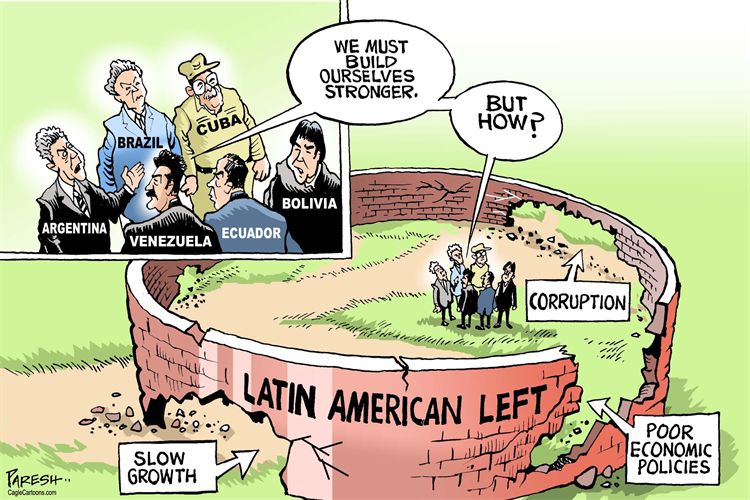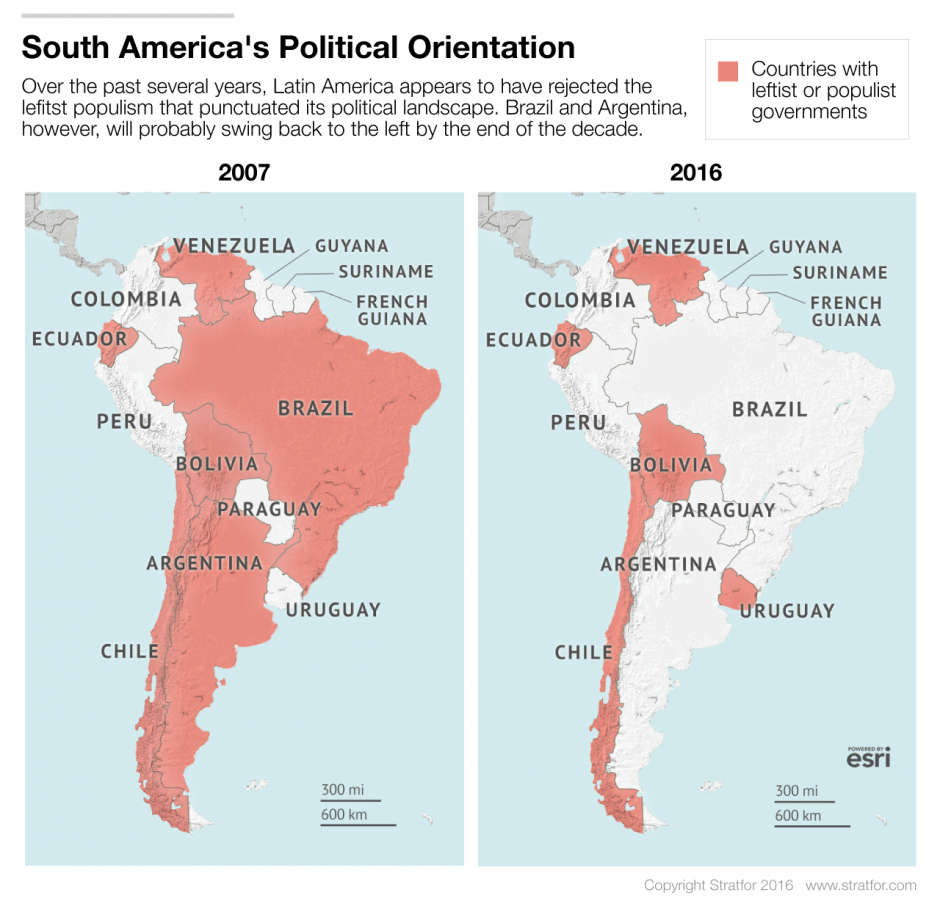Politics in Latin America is interesting because it manifests diverse political inclinations and hence totally different development outcomes.

Dependency Theory was proposed shortly after World War 2 in an attempt to explain the underdevelopment in Latin America. It argues that underdevelopment as experienced in Latin America is the direct result of capital intervention rather than a condition of “lacking” development or investment, contrary to what people widely believed at the time. Since the United States was the largest partner with many countries in Latin America, leftists in Latin America back then started to believed that it was the United States that was extracting their wealth the whole time in the name of “helping them.” Theory had huge repercussions in the Latin American societies, and leftist movements happened on and on in Latin America.
Socialism did help improve the economy of these countries a little bit in the sense that foreign capital could not directly manipulate the market anymore at the beginning; however, due to very poor leadership and inadequate internal needs, some Latin American countries could not prosper like China did in the second half of the 20th century. Some Latin American countries were convinced replication of the socialist model might not work for them while some insisted on the socialist path. Up till now most of the countries in Latin America either gave up the socialist ideology or stroke a balance between capitalism and socialism. However, Venezuela, Ecuador, and Bolivia are still predominantly leftist-led; they also happened to be the most unstable and poorest countries in Latin America.

It is hard to tell whether socialism fits Latin American countries better than capitalism since leadership plays a crucial role in development in addition to the internal market of the country per se. In recent decades, Latin American countries have been working hand in hand to work out what they call the “Socialism of the 21th century,” which stresses socioeconomic integration across Latin America. Also, it is feared that these countries would turn left again with the increasing involvement of the People’s Republic of China in the Caribbean.